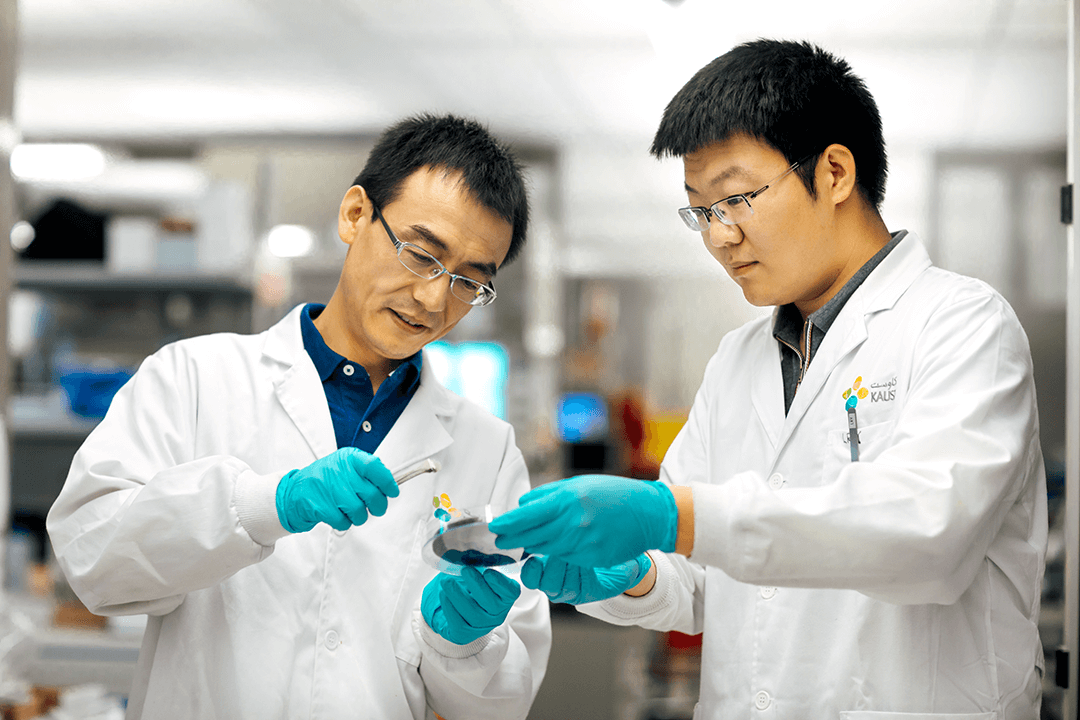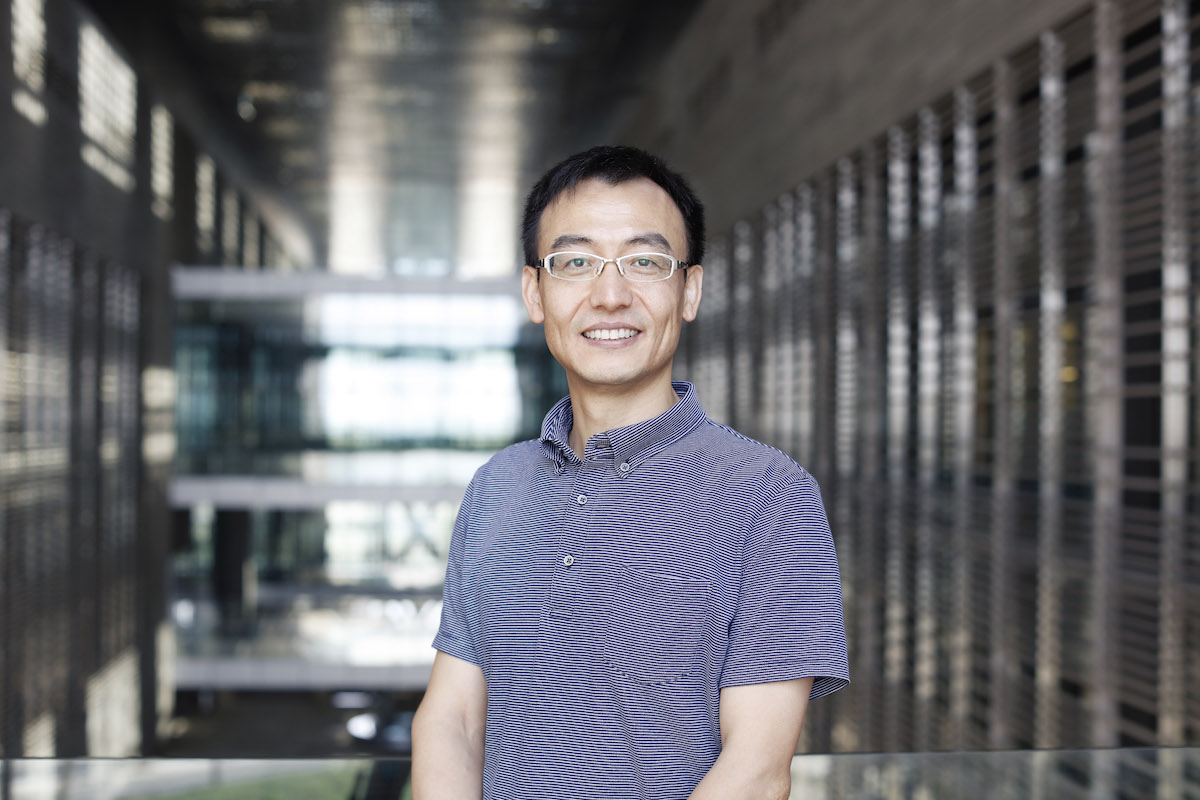Wang wins PSIPW award

KAUST Professor Peng Wang (left) in the lab with doctoral student Renyuan Li, looking at the precursor material to the hydrogel used for PV-cooling.
Peng Wang, KAUST professor of environmental science and engineering, has been awarded the 2020 Prince Sultan Bin Abdulaziz International Prize for Water (PSIPW) for his work "at the forefront of the solar-water nexus."
Established in 2002 by HRH Crown Prince Sultan Bin Abdulaziz, the PSIPW is a scientific prize that focuses on innovation and "efforts made by scientists, inventors and research organizations around the world which contribute to the sustainable availability of potable water and the alleviation of the escalating global problem of water scarcity," according to the prize's website.
Wang's research is focused on making solar energy a solid contributor to the global water-energy nexus, with specific activities including solar-energy driven processes of fresh-water generation via distillation, industrial brine treatment with zero-liquid discharge, and atmospheric water harvesting and its applications to solar PV cooling.
"I have a profound sense of humility at my award as the previous and current awardees include many seminal figures in the field of water, whom I admire deeply," Wang, who joined KAUST in 2009 as a founding faculty member, said. "My previous and current team members deserve the most of the credits and they were/are behind every successful research project. I really appreciate the generous support I received from KAUST, without which I would not be able to move from a fresh Ph.D. graduate to where I am within a short 11 years."
Wang is credited with his pioneering contributions to "solar distillation, zero liquid discharge desalination, and atmospheric water harvesting and its application to PV cooling. His recent research into solar cooling is of high impact for places like Saudi Arabia, where average daytime temperatures are over 45 degrees C. In such extreme environments, the efficiency of solar cells decrease significantly.

KAUST Professor of Environmental Science and Engineering, Peng Wang. File photo.
"On the one hand, about 844 million people still don't have daily access to safe drinking water in the world. On the other hand, the world is shifting into a decarbonized and circular economy by necessity. Solar energy, and other types of accessible clean and renewable energy, will assume a central role in the water‐energy‐climate nexus in the years to come," Wang said.
To overcome these challenges, Wang's team has explored mounting a cooling panel to the back of existing solar cells. The cooling panel is made from a hydrogel that contains a water-attracting salt. The panel collects water from the air, usually in the evening and at night when the air humidity is at its highest. The water vapor then liquefies in the hydrogel and is stored in the material. When temperatures rise during the day, the hydrogel warms up and the water evaporates, cooling the panel—similar to the way the human body cools through sweating. In field trials the cooled panels were able to generate up to 19 percent more electricity than uncooled controls.
"I certainly hope that our research promotes more energy-efficient utilization of alternative water and energy resources and also the creativity embedded in our work inspires new scientific innovations towards providing better solutions to the global grand challenges," Wang said.
Related stories
- Giving old technology a modern update
- A leap forward for perovskite-silicon solar cells
- Region's First Conscious Investor Fellowship
-
KAUST Ph.D. graduate wins best paper award at prestigious Euro-Par 2020

